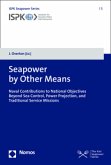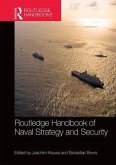This book charts new waters in the study of European naval power. It explores the evolution of Europe's navies from the final days of the Cold War to a period of hybrid wars and renewed strategic competition, manifest in Russia's invasion of Ukraine and China's increasingly aggressive behavior in the Asia-Pacific Region. The study compares and contrasts the development of maritime forces across the continent during a period of fundamental change within the global security environment. By applying a novel methodology that links strategies, force structures, and operations, the book determines when, why, and to what degree each navy either continued to focus on competitive and state-centric missions, aimed at the defense of national territory and interests, or rather embraced an entirely new naval paradigm, based on collaborative and system-centric understanding of shared maritime security. The author highlights how inconsistencies and shortsighted naval policies have led to dangerouscapability shortfalls and offers several recommendations for navies to navigate successfully the future maritime environment. This book provides an invaluable resource for policymakers, practitioners, scholars, and students interested in European security, transatlantic defense cooperation, and global maritime security issues.








